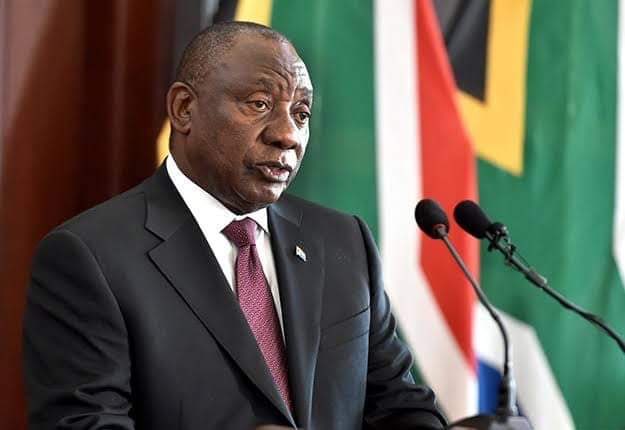Business
TymeBank to Ramaphosa: Stop Home Affairs’ “Digital Tax” on Vulnerable South Africans

As Home Affairs hikes ID verification fees by 6,500%, TymeBank calls for urgent presidential intervention
In a bold and urgent plea, TymeBank has gone over the head of Home Affairs Minister Leon Schreiber, appealing directly to President Cyril Ramaphosa to stop what the bank is calling a “regressive tax” on the poorest South Africans.
At the heart of the clash is a massive increase in digital ID verification fees set to take effect on 1 July 2025, which TymeBank argues will crush innovation, widen inequality, and stall South Africa’s push for digital and financial inclusion.
From 15 Cents to R10: Banking on the Brink
TymeBank CEO Coenraad Jonker didn’t mince words in his open letter this week.
He warned that the new Online Verification Service (OVS) fees, R10 per real-time check, up from just 15 cents—will make it commercially impossible to serve low-income customers like social grant recipients, gig workers, and informal traders.
“This is not just a price adjustment,” Jonker wrote. “This is a blow to every South African working to build an inclusive digital economy. It punishes the very people we’ve worked hardest to reach.”
The system, used by banks, insurers and fintechs to instantly verify a customer’s ID against the National Population Register (NPR), is considered vital for onboarding clients, fraud prevention and anti-money laundering compliance.
Government Defends the Increase
Minister Schreiber has defended the sharp increase, arguing that the old price had been unrealistically low for over a decade, leading to exploitation of the system by high-volume users.
He also accused some companies of overloading Home Affairs servers and then pushing customers to use private systems with inflated costs, indirectly causing downtime at DHA branches.
“We cannot allow state systems to collapse under corporate abuse,” Schreiber said in a recent briefing.
The new pricing includes a cheaper “non-live batch” option at R1 per field, aimed at legacy banks and corporate users who don’t need real-time results. But Jonker dismissed this as outdated and discriminatory.
“Anti-Competitive, Anti-Innovation”
In his letter, Jonker said batch processing won’t work in the digital age, where banking services like account openings, card replacements and payments require real-time access.
“Customers would have to return to the bank at least twice to open an account. That’s a cost they can’t afford. Neither can we,” he said.
He warned that the current model gives legacy banks a 90% discount compared to real-time users, effectively handicapping digital-first challengers like TymeBank.
“By design or not, this is anti-competitive and sabotages South Africa’s progress toward a modern banking system,” Jonker wrote.
What TymeBank Wants Instead
TymeBank insists it is not opposed to system upgrades or paying fair fees, but argues that cost recovery must be tied to performance, affordability, and transparency.
The bank is calling for:
-
A phased, performance-based fee model
-
Volume-based pricing to reduce the cost for frequent users
-
Longer notice periods to help companies adjust and budget
-
A return to multi-stakeholder consultations on digital infrastructure costs
Short Notice, Long-Term Risk
One of the biggest issues, Jonker said, is the last-minute implementation. The new pricing was officially gazetted only two weeks before going live, despite being initially published (and withdrawn) earlier this year.
With just days to go, many in the industry feel blindsided.
TymeBank’s call for intervention is now in the hands of Ramaphosa, Finance Minister Enoch Godongwana, and SARB Governor Lesetja Kganyago, all of whom have been asked to pause the rollout and reopen dialogue with the industry.
Digital Inclusion vs. State Sustainability
This standoff reflects a deeper tension in South Africa’s digital future: who pays to build and maintain public digital infrastructure?
TymeBank believes it should not be low-income customers or digital disruptors bearing the brunt of the cost. Home Affairs argues that the state can’t afford to subsidise billion-rand corporations.
As the clock ticks down to 1 July, the battle lines are drawn, not just between one bank and a minister, but between two visions of progress: one rooted in accessibility, the other in sustainability.
Jonker put it plainly:
“Digital transformation and financial inclusion are not luxuries. They are the backbone of a modern, just society. The government must not raise barriers where it should be building bridges.”
“Profits Over People?”: Minister Schreiber Blasts TymeBank Over ID Verification Fee Hike
{Source: BusinessTech}
Follow Joburg ETC on Facebook, Twitter , TikTok and Instagram
For more News in Johannesburg, visit joburgetc.com



























